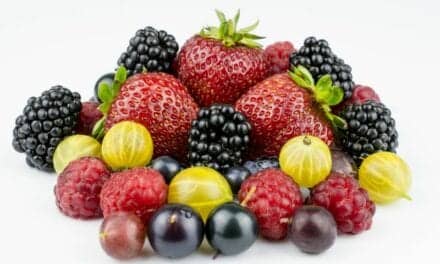Burt’s Bees announces new research supporting the role of efficacy-first, natural regimens to defend, replenish and restore vibrant, healthier-looking skin. The studies are being presented at the virtual Integrative Dermatology Symposium (IDS).
Research Findings
The latest research findings from Burt’s Bees highlight:
- Anti-aging and anti-inflammatory properties of bakuchiol, a natural alternative to retinol that is well tolerated on sensitive and photo-damaged, aging skin.
- In vitro and in vivo data on a natural lip balm containing antioxidant-rich turmeric and its ability to provide therapeutic benefits in dry or compromised lip conditions.
“At Burt’s Bees, our research and data are at the center of all that we do. The results from our latest studies further support the proven power of nature-based ingredients in skin care, providing valuable insight into the efficacy of bakuchiol, a natural retinol alternative, and the potent antioxidant-rich botanical turmeric.
“Scientific evidence suggests a rise in inflammatory skin conditions, which is likely to be exacerbated by consistent mask wear paired with the approaching winter months. Bakuchiol and turmeric are proven to be powerful yet gentle nature-based ingredients that are key to helping to improve the condition of the skin and lips.”
— ” said Hemali Gunt, PhD, Head of Clinical and Scientific Affairs at Burt’s Bees
IDS 2020 Posters
Burt’s Bees posters at IDS 2020 will be available on the meeting platform until Sunday, Nov. 1 and include:
- Bakuchiol, a natural alternative to retinol, inhibits inflammatory markers in vitro and clinically improves appearance of aging, sensitive skin; Gunt H. and Levy S.; virtual presentation.
- About the Research: The anti-inflammatory effects of topical bakuchiol, a natural alternative to retinol, was evaluated in vitro on test tissues before and after UVB exposure. The tolerability and efficacy of a topical bakuchiol was also studied in a 4-week study with female subjects with sensitive, photo-aging skin.
- Results indicated a significant reduction in release of inflammation and irritation markers, demonstrating bakuchiol’s unique anti-inflammatory properties.
- The study showed significant improvements in investigator-graded and subject-rated efficacy measures, indicating bakuchiol’s ability to improve the health of photodamaged skin without signs of irritation and supporting its use in topical treatments as a natural alternative to retinol.
- About the Research: The anti-inflammatory effects of topical bakuchiol, a natural alternative to retinol, was evaluated in vitro on test tissues before and after UVB exposure. The tolerability and efficacy of a topical bakuchiol was also studied in a 4-week study with female subjects with sensitive, photo-aging skin.
- In vitro anti-inflammatory activity and in vivo efficacy of a natural lip balm containing antioxidant-rich turmeric for extremely dry lips; Gunt H. and Levy S.; virtual presentation.
- About the Research: A natural lip balm containing turmeric, a potent botanical, combined with beeswax, cocoa and shea butters, and castor and coconut oils, replenishes the lips’ moisture barrier and improves hydration to help repair dry, sensitive lips.
- The first study examined in vitro antioxidant and anti-inflammatory activity of a lip balm formulation containing turmeric via test tissues. Results demonstrated a significant reduction in ROS formation and inflammatory mediator release.
- A second 2-week study examined in vivo efficacy of the lip balm on human lips. Results indicated significant improvements in clinical grading at measurement intervals (baseline, day 3, week 1 and week 2), with lip hydration increasing dramatically at day 3.
- Overall, in vitro and in vivo results demonstrated that a well-formulated natural lip balm containing turmeric can boost antioxidant and anti-inflammatory activity to provide therapeutic benefits in dry or compromised lip conditions.
- About the Research: A natural lip balm containing turmeric, a potent botanical, combined with beeswax, cocoa and shea butters, and castor and coconut oils, replenishes the lips’ moisture barrier and improves hydration to help repair dry, sensitive lips.
“As more and more patients express a preference for using natural skincare products, this significant research helps us better understand the properties and efficacy of nature-based ingredients and how they can be used to positively impact skin health, especially for those with sensitive or compromised skin conditions.
“Clinical results help drive scientific support for natural regimens, as dermatologists seek natural solutions for their patients.”
— Stanley Levy, MD, a board-certified dermatologist in Chapel Hill, North Carolina, and study investigator
[Source(s): Spectrum Science, EurekAlert]





